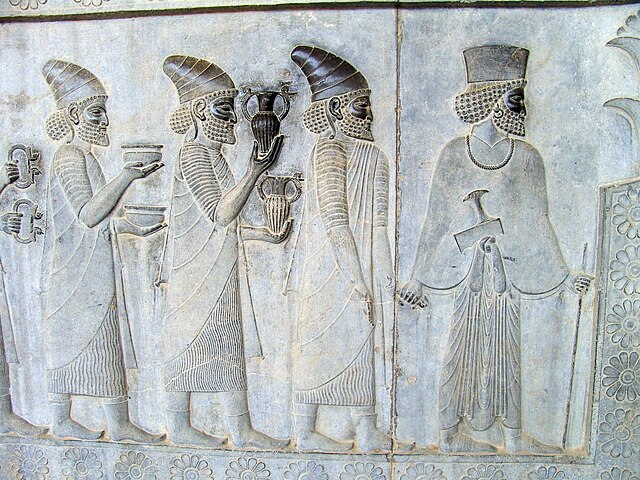A tribute is wealth, often in kind, that a party gives to another as a sign of submission, allegiance or respect. Various ancient states exacted tribute from the rulers of lands which the state conquered. In the case of alliances, lesser parties may pay tribute to more powerful parties as a sign of allegiance. Tributes are different from taxes, as they are not collected in the same regularly routine manner that taxes are. Further, with tributes, a recognition of political submission by the payer to the payee is uniquely required.
A procession of high-ranking Assyrian officials followed by tribute bearers from Urartu. From Khorsabad, Iraq, c. 710 BCE. Iraq Museum
Objects in the "Apadana" reliefs at Persepolis: armlets, bowls, and amphorae with griffin handles are given as tribute.
The Tribute Money, George Hayter, 1817.
The Aztec Empire or the Triple Alliance was an alliance of three Nahua city-states: Mexico-Tenochtitlan, Tetzcoco, and Tlacopan. These three city-states ruled that area in and around the Valley of Mexico from 1428 until the combined forces of the Spanish conquistadores and their native allies who ruled under Hernán Cortés defeated them in 1521.
First page of the Codex Boturini, showing the migration of the Mexica.
Jaguar warriors in a flowery war from the Codex Zouche-Nuttall
Codex Azcatitlan depicting the Spanish army, with Cortés and Malinche in front
Cristóbal de Olid led Spanish soldiers with Tlaxcalan allies in the conquests of Jalisco and Colima of West Mexico.







